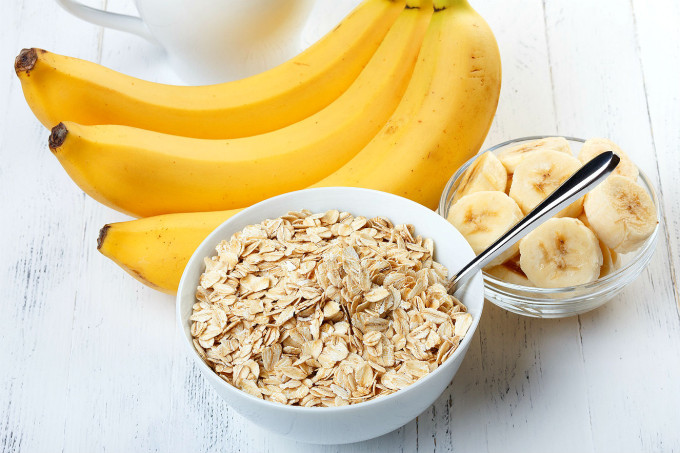Simple Pre/Post-Workout Fuel Breakdowns That Actually Make Sense.
Ever found yourself standing in the kitchen, wondering if that banana is enough fuel before a workout? Or maybe you’ve finished a killer gym session and you’re thinking, “Now what?” You’re not alone. Pre- and post-workout nutrition can feel confusing, but it doesn’t have to be.
Let’s break down what you really need to know about fueling your body around workouts—without overcomplicating it.
Why Pre- and Post-Workout Nutrition Matters
When you work out, your body uses stored energy—primarily in the form of glycogen (a form of carbohydrate stored in your muscles and liver). Exercise, especially strength training and intense cardio, puts stress on your muscles and depletes those energy stores. That’s where smart nutrition comes in.
Pre-workout nutrition gives you the fuel to perform your best. Post-workout nutrition helps you recover, rebuild muscle, and replenish energy.
Getting these meals right doesn’t require a science degree—but understanding the basics of what your body needs can seriously improve your results.
What to Eat Before a Workout
Your goal: Fuel your workout without feeling sluggish or heavy.
The two main things your body needs pre-workout are:
- Carbohydrates – your main source of quick energy
- Protein – helps protect muscle tissue during training
Timing Matters:
- 2–3 hours before: Aim for a balanced meal with carbs, protein, and a little healthy fat.
- 30–60 minutes before: Choose something lighter and easier to digest (think carbs + a little protein).
Examples of Pre-Workout Snacks:
- Greek yogurt with berries
- Banana with a tablespoon of almond butter
- Oatmeal with a scoop of protein powder
- Whole grain toast with a slice of turkey
- Rice cake with peanut butter and honey
Avoid: High-fat and high-fiber foods right before working out. These can slow digestion and make you feel heavy or bloated.
Bonus Tip:
If you’re working out first thing in the morning and don’t have time for a full meal, a small snack (like half a banana or a protein shake) is better than going in on empty.
What to Eat After a Workout
Your goal: Refuel, repair, and recover.
After a workout, your muscles are primed to absorb nutrients. This is when you want to give your body what it needs to recover and grow stronger.
The two big players here:
- Protein – to repair and rebuild muscle tissue
- Carbohydrates – to replenish the glycogen you just burned
According to research published in the Journal of the International Society of Sports Nutrition, consuming protein and carbs within two hours after exercise can enhance muscle recovery and support performance gains.
Ideal Post-Workout Window:
Try to eat within 30–60 minutes after your workout, especially if it was intense.
Examples of Post-Workout Meals:
- Grilled chicken with sweet potato and broccoli
- Protein shake with a banana and almond milk
- Scrambled eggs with avocado toast
- Tuna wrap with whole grain tortilla and spinach
- Smoothie with Greek yogurt, berries, and oats
Note: You don’t need a fancy protein powder unless it’s convenient for you. Whole food options work just as well—just make sure you’re getting a decent amount of protein (~15–30g depending on your size and goals).
Hydration: Don’t Sleep on It
Water plays a critical role in performance and recovery. Even slight dehydration can impact energy, strength, and coordination. Be sure to:
- Drink water before, during, and after workouts
- If you’re doing a long workout or sweating heavily, add electrolytes (like sodium, potassium, magnesium) to help with fluid balance.
Let’s Talk Energy: The Science (Briefly)
When you exercise, your body primarily uses:
- Carbohydrates (glucose/glycogen) for high-intensity work
- Fats for longer, lower-intensity efforts
Protein isn’t used much for energy unless you’re severely depleted—but it is critical for muscle repair and recovery post-workout.
The type of exercise you do also affects what you need:
- Strength training: Focus more on protein post-workout
- Cardio/endurance training: Higher carb intake is beneficial before and after
Common Mistakes to Avoid
- Skipping post-workout fuel – You might feel fine, but recovery suffers.
- Eating too much fat right before training – Slows digestion.
- Training fasted when you’re not used to it – Can lead to fatigue and poor performance.
- Using exercise as a pass to eat junk – Fuel with purpose, not as a reward.
Personalizing Your Nutrition
We’re all different. Some people prefer light snacks, while others need full meals to feel energized. Try experimenting with timing, food types, and portion sizes to find what works best for your body and workout style.
If you’re focused on performance, weight loss, or muscle gain, your macronutrient needs may shift. A certified nutrition coach or registered dietitian can help fine-tune your plan.
Your Fitness Fuel Formula (Keep It Simple)
Before Workout:
- Carbs + protein (low fat, low fiber)
- Example: Rice cake + peanut butter, or yogurt + fruit
After Workout:
- Protein + carbs (add veggies or healthy fats if it’s a full meal)
- Example: Chicken + quinoa + veggies, or smoothie with protein and oats
Hydration:
- Water + electrolytes if needed
Final Thoughts
You don’t need to obsess over every gram or meal, but fueling your body smartly before and after a workout can make a world of difference in how you feel, perform, and recover.
Think of it as part of the process—not a chore. You’re not just eating—you’re investing in your progress.
So next time you lace up your shoes or pick up a dumbbell, ask yourself: What does my body need to crush this workout and bounce back stronger? Fuel accordingly—and keep moving forward!

